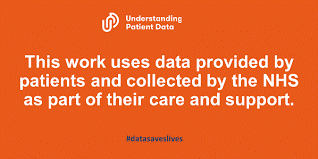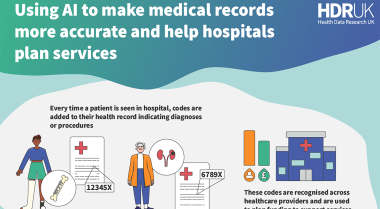Maximising the visibility of HDR UK insights and innovations
25 June 2019 | Author: Melissa Lewis-Brown, Chief Science Strategy Officer (Interim)
Even in its relative youth, HDR UK is already beginning to make progress towards making discoveries that improve people’s lives. Peer-reviewed papers are being published, software is being developed and other innovation outputs are amassing. One of HDR UK’s core values is transparency – it is vital that the outputs made possible by HDR UK support are accessible for the anyone to see, use, critique and celebrate. The more transparency the better in the development, implementation and use of outputs, such as algorithms, that may be deployed into society for healthcare in the future. This drives quality, by allowing ‘critical friends’ to check our work is robust, avoids waste of resources by reinventing the wheel and facilitates building capacity within the research and innovation workforce. If outputs are shared, they can be improved upon and re-used for all sorts of things by all sorts of people: create it once, use it often.
Outputs first need to be ‘tagged’ to HDR UK so they are clearly defined – exactly how to do that will be published in our attribution policy in a few weeks. Ideas that will be incorporated into that policy are discussed here and your feedback is warmly invited.
Who or what has made HDR UK research and innovation possible?
- Patients – As well as attributing HDR UK in research outputs, the HDR UK community should also recognise the role of patients and public in providing health data (e.g. by using the Understanding Patient Data citation pictured below).

- Teams – Team Science is at the core of health data science, which brings together not only different disciplines (mathematics, computer science, statistics, medicine, epidemiology etc), but also various sectors (academia, healthcare, industry, charities, patients, carers and the public etc), and across regions of the UK: after all, HDR UK’s long term goal is to enable population health studies on the whole UK population of 66 million. We want to ensure that each contributor to an output supported by HDR UK is named on a publication and their role specifically acknowledged through use of the Contributor Roles Taxonomy (CRediT) We’ll also use ORCID numbers to help track HDR UK’s members.
- Data – We are looking at systems such as DataCite, Zenodo or other systems that assign a unique identifier (in this case a digital object identifier, DOI) in order to facilitate citation of data or other research-related digital artefacts. This will make it easier for research data to be found and support its re-use, as well as support the acceptance of research data as legitimate, citable contributions to the scholarly record.
How can people access HDR UK outputs?
We are committed to making HDR UK outputs available in open access environments so they can be viewed by all. For example, HDR UK is in the process of setting up an institutional HDR UK GitHub repository – this will be an open access and community-driven repository of code and algorithms for re-use and iteration, bringing health data scientists within the HDR UK community together. We are also committed to publications being made fully open access and are looking at the most appropriate ways in which HDR UK can support initiatives toward that goal.
Celebrating HDR UK innovations and the people and teams that create them
As well as putting the right policies in place and embracing best-practice, we also want to celebrate the people and teams that make our research happen. Some ideas include:
- Every month a list of all open access HDR UK publications will be announced in the HDR UK monthly newsletter, Hive; and added to a complete list of HDR UK open access publications on our website.
- ‘Open Access Publication of the Month’ to be selected by a panel of early career researchers (let us know if you’re interested in joining this panel?). This will be announced in the HDR UK monthly newsletter, Hive, and featured in a blog published on the HDR UK website.
- ‘Team of the Year’ award to be selected by HDR UK’s International Advisory Board. This will be an open application process and any HDR UK team can apply and will be encouraged to provide a range of outputs as evidence of success.
- ‘HDR UK Twitter influencer of the Year’, to be named each year, based on Twitter analytics including sentiment analysis.
- ‘HDR UK GitHub contributor of the year’, to be named each year, based on GitHub’s in-built leader-board.
What’s your opinion?
HDR UK’s attribution and open access policies will be published within the next few weeks. It will be aimed at anyone directly in receipt of HDR UK funds or working on HDR UK projects. We very much welcome feedback on the plans outlined in the blog – please send any comments or questions to melissa.lewis-brown@hdruk.ac.uk.



